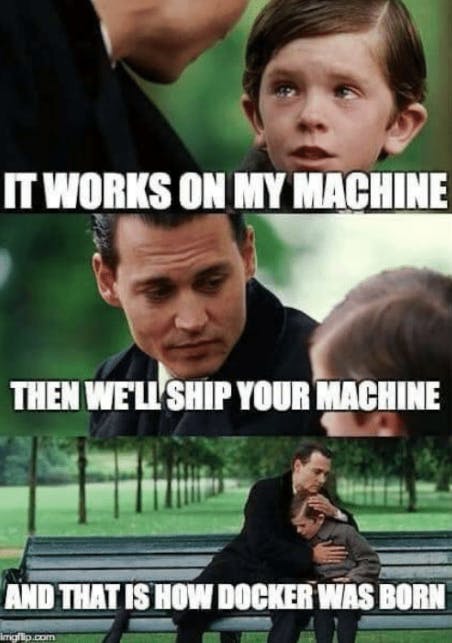Hey there. Welcome back.
How's your month been? Any nice things you've built or have helped with?
As you know now by the title of this post, we're gonna talk about the one event that some of us have been waiting the whole year.
The month-long celebration of Open Source known as Hacktoberfest.
It has been hosted by Digital Ocean along with other partners and can you believe it's been 9 years already?
I'm not going to talk much about their origins or my experience with it because I already wrote about it before.
In this case, let's do a high-level recap of what has happened on this year's edition.
First things first, can we talk about how awesome is the logo this year?

Starting with it and then all the rest of graphics and the general theme that you can see all over the official site, it's pretty evident they have taken their whole brand identity to a whole new level.
I could talk on and on about all the different improvements, features of the site, cool UX additions, and easter eggs but I would make this post much longer than it needs to be.
And I usually have the tendency to ramble a lot and make drafts longer than usual so let's leave it at that haha 😅
One thing I want to mention though, is that this year there are some particular sponsors along Digital Ocean.
Event Sponsors
In past years, there's been GitHub, Twilio, Intel, and DEV.
This year, come along Appwrite and Docker.
I remember Appwrite because I saw them from a post they made on the DEV community and got to find about the project on GitHub.
I though back then (and still do now) that it's an awesome initiative to facilitate the backend creation process and make it easier to get started building an app in a matter of minutes instead of several days (which is how it was before).
I mean, building a whole backend with connection to a database that handles all the required features for a traditional application (user auth, account management, data persistence, etc) it's not an easy task.
And if you add to it the complexity of web app + mobile app, things start getting hairy pretty soon.
Now, on the other side talking about Docker... well... it doesn't really need a big introduction.
Since it was released and started making buzz around in the developer community, it's been a very useful tool that has spawned an entire community of devs and cloud enthusiasts.
It solved the very common issue we all have come across that "it works on my machine."

Getting a whole developer setup up and running, for instance in a new client project, could take up to one day or sometimes more depending on the project's complexity.
With Docker, you could just download the platform, get it running properly on your system, and then download an image (or more) containing the necessary software plus all the configurations required.
There are some who started saying that since code would work on some computers with particular software configurations, those computers should be sent to the cloud to have the code running there.

So yeah, Docker has made quite an impact in the industry and so I'm glad that we've had the team sponsored the event this year.
What's new
From previous years it's been known that contributing to Open Source looks like a daunting quest to embark on.
That's why there's been many resources appearing and people talking about how to make it more beginner friendly for people who want to get started with it.
This year, I've seen that many of those resources not only have been shared more widely for the event, but the official Hacktoberfest site has collected the most relevant and made them available to everyone who signed up this year.
From articles about what is Open Source and how to contribute to it, to getting started with Git, GitHub and creating PR's.
Guides to find relevant projects that need certain particular skillsets and online etiquette.
Talks about learning the Git workflow for code contributions and how participating in this initiative can boost your developer career.
On top of that, there are sites that makes it easy that super complicated task of finding actual projects that have issues labeled "good first issue" or "help wanted" and use languages that we know and have a good skill level with.
Sites like this or this and even this one which is super cool and properly themed for this year.
Don't forget the already present GitHub repos that host resources and projects that are especially made or beginners and list all the ways one can contribute.
Some of those are the first contributions and the awesome for beginners.
Additionally, there are some resources made available to sharpen your skills when creating PR's and submitting them to maintainers.
The two most interesting I've found are this one and this one
GitLab and NoCode
Aside from the traditional flow of...
- Find a project on GitHub you can contribute to.
- Comment that you want to have a go at an issue.
- Get an approval for it and get it assigned (or not needed).
- Get to work and come up with a solution for the issue.
- Submit your code in a PR and have it working for others to see.
- Have a "LGTM" from one of the maintainers and get it merged.
This year GitLab also joined in with some projects open for contributions that count towards the 4 required to complete the challenge.
In GitLab's case, they are not PR's but rather "Merge Requests" (MR's). This change is due to a historical reason.
And the other relevant thing to mention is that code heavy PR's are not the only ones that count this time.
In previous years things like improving documentation, making projects easier to use for non-developers (aka "users"), and creating tutorials were other options for folks to support the projects.
This year, however, these alternatives are not only known but actively encouraged and count towards the contribution requirements. And they're now organized in categories and with more options to choose from.
Both in "low-code" and "no-code" areas. You can help out with stuff like writing, designing, or doing advocacy for the projects.
This means that now it's even easier to get started in Open Source and get involved with the many projects out there who create great software and could use a hand (or many) to continue forward.
Let's not forget that this time the rewards are not only for Hacktoberfest participants but also for the project maintainers themselves.
(Because you know, maintain an ongoing project and choosing contributions that help and those that don't is no easy task).
Wrapping up
By now you probably have already seen some of what's out there, gotten into some (or many) projects and done work for completing the 4 required PR's.
And you also got those very cool looking badges. I mean, look at those, badges are a very nice incentive to have. Even more so when they change and look better as they progress.

You may have already encountered the sites where there are tutorials and courses put together to help you level up your skills as developer for this particular month.
There are several out there, but I personally found this one and this one useful.
So that's it. Enough Hacktoberfest for all to last us the whole month and get more people involved in this wonderful community of Open Source.
Did you attend one of the many events that were held globally to hack away at issues together?
Did you contribute to projects in a traditional code-related way or went more for the "low-code"/"no-code" way of contributing?
If you have any other experiences or particular situations that came across during this time, I will appreciate that you leave them in the comments.
Thanks for reading and catch you next time!



